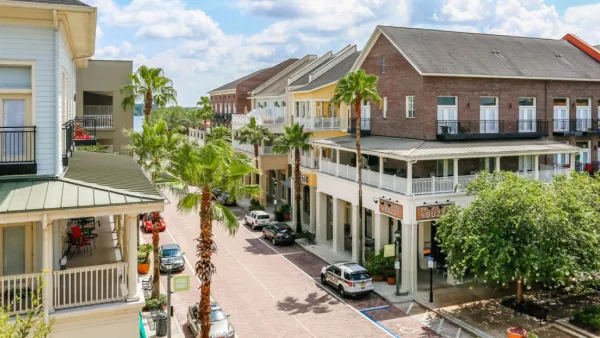The rise of the innovation economy is driving fierce competition between cities across America to attract medical facilities and universities as job providers and engines of development.
The role of the medical industry and higher education in stimulating development, and boosting employment, is the focus of reporting by Urban Land Magazine's Mike Sheridan. As America moves from a manufacturing economy to a knowledge economy, medical facilities and universities are leading the diversification of metropolitan economies across the country.
"Among the 100 largest cities in the country, two-thirds have medical facilities and universities as major employers, [Tom Murphy, ULI senior resident fellow, and former mayor of Pittsburgh] notes. 'Over the last 20 years, we've watched a real turnaround in cities that historically were manufacturing based, and over the years it's all changed,' he says. 'Medicine and education have become economic generators in cities including Baltimore, Boston, and a number of others. It speaks [volumes] about the loss of manufacturing jobs and also about the increasing impact of medical facilities, which are not only providing care and education, but also becoming major research centers with a major economic impact.'"
In post-recession Florida, Orlando is looking to Lake Nona Medical City to provide jobs and economic development. With partners such as the University of Florida, Nemours pediatric health care system, and U.S. Department of Veterans Affairs, Lake Nona's Medical City campus is expected to provide thousands of new jobs and generate billions of dollars in construction spending.
Understanding the growing importance of such facilities, cities across America are offering lucrative incentives and building infrastructure to lure colleges and medical cluster anchors. "Communities-and developers-seeking to attract medical clusters should be patient and listen to others who have been through the process, says [Larry Pelton, president of the Economic Development Council of St. Lucie County]. 'They should build infrastructure that is attractive to scientists and to the institutes, including housing, education, and recreation facilities, a vibrant vendor/supplier network, and a leadership team that is 100 percent committed to success,' he advises."
Thanks to Andrew Gorden
FULL STORY: Innovation Anchors: Medical and Educational Facilities Drive Development

Maui's Vacation Rental Debate Turns Ugly
Verbal attacks, misinformation campaigns and fistfights plague a high-stakes debate to convert thousands of vacation rentals into long-term housing.

Planetizen Federal Action Tracker
A weekly monitor of how Trump’s orders and actions are impacting planners and planning in America.

In Urban Planning, AI Prompting Could be the New Design Thinking
Creativity has long been key to great urban design. What if we see AI as our new creative partner?

King County Supportive Housing Program Offers Hope for Unhoused Residents
The county is taking a ‘Housing First’ approach that prioritizes getting people into housing, then offering wraparound supportive services.

Researchers Use AI to Get Clearer Picture of US Housing
Analysts are using artificial intelligence to supercharge their research by allowing them to comb through data faster. Though these AI tools can be error prone, they save time and housing researchers are optimistic about the future.

Making Shared Micromobility More Inclusive
Cities and shared mobility system operators can do more to include people with disabilities in planning and operations, per a new report.
Urban Design for Planners 1: Software Tools
This six-course series explores essential urban design concepts using open source software and equips planners with the tools they need to participate fully in the urban design process.
Planning for Universal Design
Learn the tools for implementing Universal Design in planning regulations.
planning NEXT
Appalachian Highlands Housing Partners
Mpact (founded as Rail~Volution)
City of Camden Redevelopment Agency
City of Astoria
City of Portland
City of Laramie




























